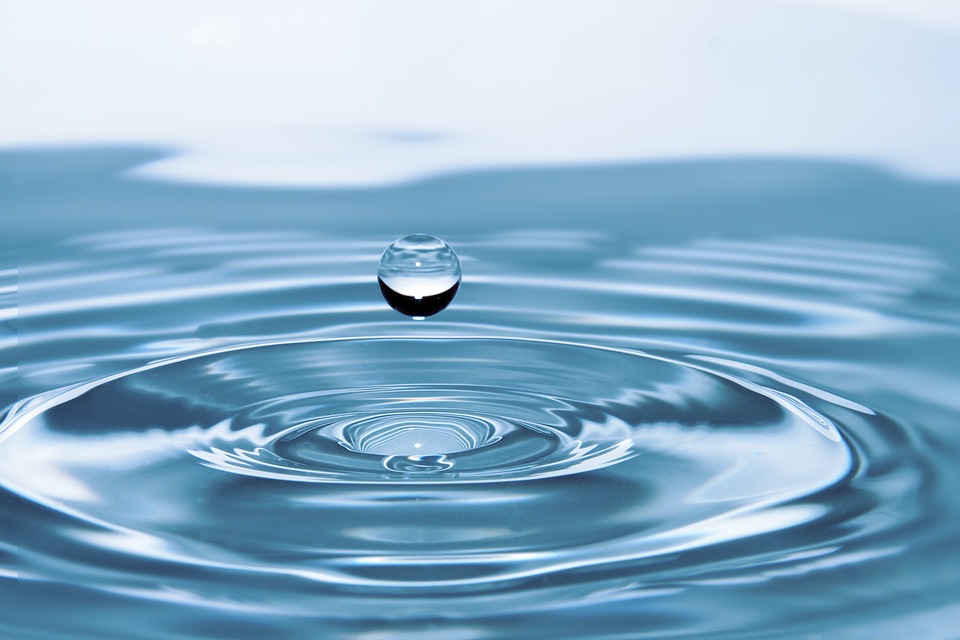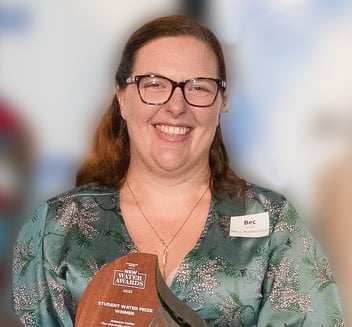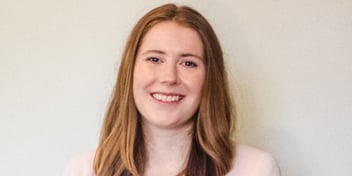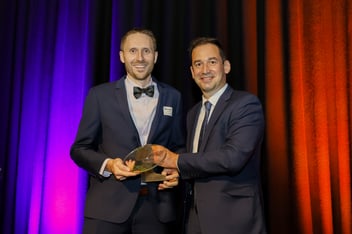Spotlight on a Regional YWP: Rachael Abberton

This is part of a series of Regional Young Water Professional Spotlight articles, with an interview with Rachael Abberton who works for MidCoast Council. The Spotlight articles highlight the experiences and contributions our regional members make to their industry and communities.
Q: Tell us a little about yourself and the work you do.
I am the planning engineer for MidCoast Council for drinking water, wastewater and recycled water. As a planner I do so many different things, which is what I love about the role. My responsibilities include being the project manager on major capital works and infrastructure planning projects in feasibility, optioneering and concept phases, working with consultants completing designs. I am also involved in preparing water and sewer strategies and plans for our area. MidCoast is a large regional council that has 14 sewer schemes and five water schemes (with six water plants). I get to work on strategies that service both higher population areas with very peaky tourist loads, such as Forster Tuncurry and Hawks Nest, as well as smaller schemes such as Gloucester and Stroud. I learn so much in my role every day! Outside of work you’ll find me playing with my dog, spending time with my partner and friends, in line to catch a wave at the beach before hitting off the tee at the golf course.
Q: What brought you to work at MidCoast Council?
I grew up in Forster and now live in Forster again after a brief period working in Newcastle. I was working as an environmental engineer at Douglas Partners doing work in contaminated lands, groundwater management, completing environmental studies with a little bit of construction work. I have five years of post-graduate experience in the water industry. My career goal developed to obtaining a water engineering role in Forster with MidCoast Council as my partner and I both are from Forster and want to base ourselves here.
Q: What is the best thing about working in a regional area?
There are many reasons why working in a regional area is great. Regional NSW is a great place to live! Forster is a small tight-knit community, everyone knows everyone, you can go to the beach and live a slower-paced lifestyle which suits me perfectly. I can also integrate well with nature and the environment and have a connection to the water, sewer and recycled water schemes that we work on. I surf at a nearby ocean outfall; I am living in the communities where we are working on long-term strategies for the provision of water and sewer. I feel a strong dedication and ownership over my work, and the planning decisions made for the community because this is my community. I am proactive in being a champion of working in regional NSW in STEM. Our regions need skilled operators, technicians, engineers, scientists, etc. across the state. The Regional NSW water industry provides challenging, interesting and rewarding roles that will allow workers to learn and grow, with opportunities for career progression and ongoing learning and the regional lifestyle that so many love.
Q: What is the most difficult thing about working in a regional area?
I look at this question in two ways; from a STEM perspective and my personal perspective.
From a STEM perspective, I think there are opportunities to improve high school students’ understanding of the STEM opportunities in regional areas. I wish someone had told me about the careers and opportunities of the water industry (and STEM in general) available regionally when I was at school. I thought I had to move to a bigger regional centre or city to have a good career in STEM. This is a reason why I have recently been going into high schools career days and talking about the opportunities for students in regional locations in STEM. I have so many friends who I grew up with that have moved to the city to work and study, who have either moved back to regional NSW or want to - I was one of them! I am so happy I can have an amazing career in STEM and live exactly where I want to.
I can’t really think of anything that is “the most difficult thing about working in regional NSW”. Work challenges are important to anyone that has chosen to work in the water industry because that’s what makes it exciting. I don’t think I would be happy in a role that didn’t allow me to learn, grow and push myself. There are of course challenges for work that are unique to regional NSW (such as schemes spread out over much larger service areas with a smaller population), but I wouldn’t say these are difficult in terms of being a disadvantage compared to working in the metro. I chose to work as a water engineer in regional NSW to embrace these challenges!
Q: What moment/achievement are you most proud of in your professional career?
Several things come to mind.
My first would be setting the goal to obtain a water engineering role with MidCoast Council and achieving that within a few months. I really wanted to work in water planning, it interests me so much, so to get the water planning role was an amazing accomplishment for me! I also was striving to move back to Forster. I now have a wonderful balance of work and personal life. I have a beautiful friendship group, hobbies, and lifestyle in Forster and a role that keeps me excited to come to work every day!
Another achievement was being awarded a full scholarship to complete the International Water Centre Water Leadership Program in 2019. This was a program I wanted to complete. I am aspiring to one day progress into a team leader role within Council, as well as develop my self-leadership and influencing skills to be a leader now in my organisation. I believe that opportunity has already improved my leadership skills and decisions in my role at work (and also outside of work!), and I am excited to continue to develop these skills over my career.
In terms of projects, I managed the Hawks Nest STP upgrade in the feasibility and optioneering phase. Once the direction for the upgrade was identified, I was the Council project manager for the concept phase working alongside Hunter H2O, who were engaged to complete the concept design. This project has a lot of challenges, which is exciting because it gave me so many opportunities to learn. The STP is a brownfield site upgrade with a tight EPA licensing requirement. The design is to convert from IDEA technology to continuous technology, with the flexibility to accommodate tight nitrogen removal at the ultimate design of the plant. I really loved this project - I learnt so much working alongside HH2O and developed my project management and technical skills (particularly in process engineering), which was rewarding. It will be a great feeling when I can visit Hawks Nest in a few years and go to the upgraded STP that I was a part of! Damon Emerson at Hunter H2O and I are going to be presenting at the NSW State Conference on this project so stay tuned for that.
Finally, I recently expressed an interest in becoming an AWA regional water champion. I am looking forward to seeing how the program rolls out and the impact regional water professionals continue to make across the water industry. Lisa Andersons is an AWA practitioner at MidCoast Council who encourages regional members to be a part of the AWA. Lisa is an amazing role model. She has inspired me to challenge myself, put my hand up to be a regional champion and advocate for the water industry and STEM like she does. Maybe one day someone will look up to me the way I do to Lisa!
Q: If you could go back five years, what advice would you give yourself?
Don’t do a thing differently because your path takes you to be one of the happiest people ever! Enjoy the ride, continue to love to learn, everything works out the way it’s meant to.
Regional YWP’s are making a difference in their local areas and the industry as a whole. If you are a YWP living, working, or studying in a regional area and would like to get involved or share your story, please find more information on our Young Water Professional page.



